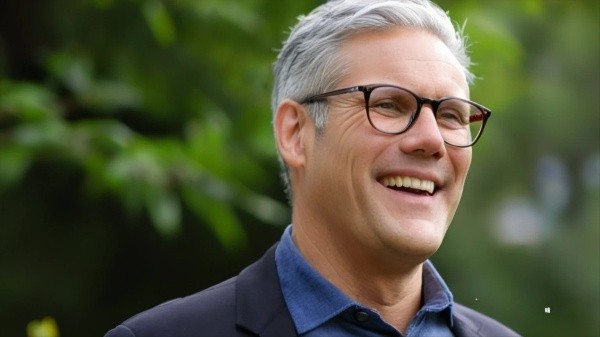Iran’s Plan to Strike Back Against the U.S.
Iran’s Military Preparations Following U.S. Attacks
Loading...

Sir Keir Starmer has officially become the United Kingdom's new Prime Minister following the Labour Party's decisive victory in this week's general election. The transition of power marks a significant shift in British politics after years of Conservative rule.
Labour secured a commanding majority in parliament, winning at least 412 of the 650 seats, according to the latest results. This landslide victory reflects a strong desire for change among the British electorate and sets the stage for a new era in UK governance.
Following tradition, Starmer visited Buckingham Palace on Friday for a formal meeting with King Charles III. During this audience, the King officially invited Starmer to form a new government, a ceremonial but crucial step in the transfer of power.
After the royal audience, the new Prime Minister made his way to 10 Downing Street, where he delivered his inaugural address to the nation. In his speech, Starmer struck a tone of unity and purpose, acknowledging the scale of the challenges ahead while expressing confidence in the country's ability to overcome them.
Starmer began by paying tribute to his predecessor, Rishi Sunak, praising his historic achievement as the UK's first British-Asian prime minister. This gesture of respect underscored Starmer's commitment to bridging political divides and fostering a more inclusive political landscape.
Addressing the clear mandate for change, Starmer emphasized the need to rebuild trust between the public and politicians. He acknowledged a growing rift that has led to "weariness in the heart of the nation" and pledged that his government would prioritize action over words, demonstrating that "politics can be a force for good."
The new Prime Minister was candid about the challenges ahead, stating that "changing a country is not like flicking a switch" and cautioning that fixing the UK's problems "will take a while." However, he assured the public that work on implementing changes would begin immediately.
Starmer's vision for governance centers on the concept of public service. He invited all British citizens, regardless of their voting preferences, to join what he termed a "government of service" in a mission of "national renewal." This inclusive approach aims to unite the country after years of political polarization.
The Labour leader's emphasis on "calm and patient rebuilding" suggests a measured approach to governance, focusing on sustainable, long-term solutions rather than quick fixes. This strategy may be intended to manage expectations and prepare the public for a period of gradual but meaningful change.
As Starmer begins his tenure as Prime Minister, he faces numerous challenges, including economic recovery, healthcare reform, and navigating the UK's post-Brexit relationship with the European Union. The substantial parliamentary majority secured by Labour provides Starmer with a strong mandate to implement his party's policy agenda.
The coming weeks and months will be crucial as the new government outlines its detailed plans and begins the process of implementing its vision for the United Kingdom. With a clear majority in parliament and a public eager for change, Keir Starmer's premiership begins with both significant opportunities and substantial expectations.
BMM - MBA
Iran’s Military Preparations Following U.S. Attacks
Troops remain in five strategic locations, raising fears of renewed tensions and long-term occupation.
Opposition forces have taken control of the capital after a significant offensive. Here is how it unravelled.
